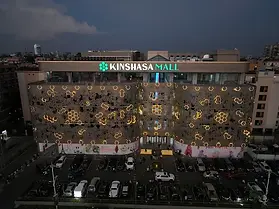
Genocost August 2: Remembering Congo’s Forgotten Genocide
On August 2, Congo honors millions lost in village massacres like Makobola and Kasika. Genocost is a call for truth, justice, and international recognition
Published:
July 31, 2025 at 5:28:25 PM
Modified:
August 3, 2025 at 4:39:42 PM
Kinshasa ��– July 30, 2025 | As the Democratic Republic of Congo prepares to mark the 3rd annual Genocost Memorial Day on August 2, voices across the world are uniting around a single message: Memory and Justice. This year’s theme, under the coordination of Prime Minister Judith Suminwa Tuluka, is not just about reflection; it is a rallying cry for international recognition, dignity, and youth-led renewal.
What is Genocost?
Genocost refers to the decades-long suffering and slow extermination of Congolese people, especially in the east of the country, due to resource-driven wars, foreign-backed militias, sexual violence, and systemic impunity. The term embodies truth, justice, and non-repetition, as emphasized by President Félix Antoine Tshisekedi Tshilombo.
A Day for the Martyrs, A Fight for Recognition
Genocide is not just a day of mourning. It is a growing global campaign for truth, justice, and non-repetition. According to the Congolese government, this year’s Genocost is guided by a sharp, purposeful theme:
“Truth is Resistance: For Justice, Peace, and a Sovereign Congo.”
Led by Prime Minister Judith Suminwa Tuluka under the direction of President Félix Tshisekedi, the 2025 commemorations are larger and more coordinated than ever before. A three-day colloquium began on July 29 in Kinshasa with participation from international jurists, UN agencies, African institutions, and survivors.
Highlights of This Year’s Genocost Memorial
A call for the creation of a Special International Criminal Tribunal for the Congo, supported by legal scholars and survivor groups.
Diplomatic advocacy at the UN Human Rights Council and the upcoming UN General Assembly, to demand recognition of the genocidal nature of atrocities committed since 1996.
A clear shift in government tone: No more appeasement of aggressors. The DRC now explicitly names Rwanda-backed militias, including M23, as perpetrators of systematic violence, rape, and ethnic cleansing.
Congo’s Genocide: A War Without a Name
Despite estimates of over 6 million Congolese lives lost, much of the world remains unaware. The silence is not accidental - it is political.
A powerful report by the Refugee Studies Centre at Oxford University revealed how social media became an underground archive for survivors. Using platforms like Facebook, Twitter (now X), and TikTok, Congolese youth built the #Genocost movement from the digital ashes of lost generations.
These digital activists, often in exile, became “witnesses beyond borders,” turning trauma into truth through storytelling. They challenged international media silence and reshaped global narratives about Congo, not as victims, but as agents of memory and resistance.
From the Streets of Goma to the Diaspora
Even as Congo builds a framework for remembrance, the trauma is ongoing. Cities like Goma, Bukavu, and Beni remain under threat. Armed groups like M23 continue to recruit children, displace families, and exploit mineral-rich zones.
The Congolese diaspora - especially in Belgium, Canada, the US, and France - plays a growing role in advocacy. Campaigns such as “Justice for Congo,” “Don’t Erase Genocost,” and “No Peace Without Memory” have rallied Congolese communities across the globe.
In April 2025, a delegation of survivors from refugee camps in Uganda and Zambia testified in Brussels, shedding light on intergenerational trauma and Rwandan military involvement.
President Tshisekedi’s Message
In his Past Genocost address, President Tshisekedi reminded the world:
Genocost is not a negotiation. It is a demand for dignity. Congo will not move forward by forgetting. We move forward by remembering and holding accountable those who bled our land.
Conclusion: The Memory is Alive
Genocost is not just a hashtag. It is a living legacy, one written by survivors, protected by youth, and now recognized by the State. With a blend of government reports, digital storytelling, and international advocacy, the DRC is claiming its truth and building a global movement that refuses to let memory die.
Never Again must mean Never Forgotten.
Tags
Keep Reading



